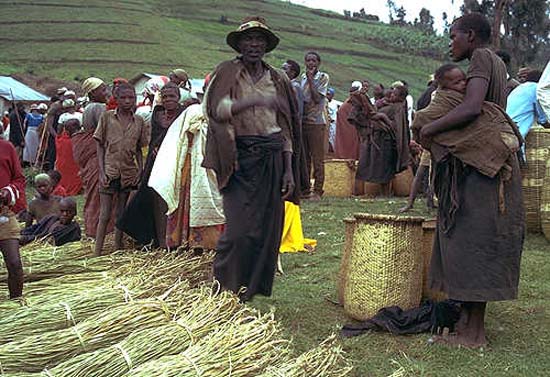
Carol Bellamy writes about Uganda's night commuters: The children have to hide by night
Uganda's night commuters: The children have to hide by night
By Carol Bellamy
Jul 16, 2004, 15:01
I have seen many disturbing things during my time with Unicef. But few are as shocking as the sight of the "night commuters" in northern Uganda. They are the 44,000 rural children who, fearing abduction by the Lord's Resistance Army, leave their villages every day to seek refuge in town before nightfall.
The world may be awakening to the emergency in Sudan but it has all but forgotten the tragedy of neighboring Uganda, where in the past two years some 12,000 boys and girls have been abducted by the LRA. Unlike any other, it is a war on children.
LRA detachments, made up predominantly of child soldiers themselves, attack at dusk. They surround small settlements and move in to steal food and abduct children to swell their ranks.
The attacks are invariably bloody. Children are often forced to kill their parents or other children. Those who are taken, some as young as six, are used as sex slaves in the rebel force, made to work as slaves, or forced to become soldiers. The LRA believes fighting age begins at seven.
The world's indifference to the crisis in Uganda was difficult to explain to the boys and girls I met last month at a reception center in Gulu for children who have escaped the LRA. I spoke with young women who had given birth to babies conceived when they were forced to have sex with LRA commanders. I spoke with boys who were forced to commit unspeakable violence when they should have been learning to read their first words.
The 18-year conflict in northern Uganda has obliterated the idea of childhood as a protected time of healthy growth. It has left parents so desperate to shield their children from abduction and murder that sending them trekking miles into town by themselves at night is their only hope, a contrarian act of love.
Every afternoon, as the sun starts dipping in the sky, children emerge from the tall grass of fields and converge on the dusty roads. The little ones are carried by older children, or ride on the center bar of bicycles. Babies are carried by their mothers, but most of the night commuters are children on their own.
The lucky ones find shelter in a handful of temporary assistance centers, where they can get water and blankets and use latrines. Others sleep in empty churches, bus stations or dusty doorways. In the morning, they walk back home or to school.
Uganda is rightly considered a development model in Africa. The government of President Yoweri Museveni has brought peace to most of the country, spread universal primary education, and has tackled the HIV/AIDS pandemic with courage and imagination. But northern Uganda stands in dreadful contrast to that success - and jeopardizes it.
One of the chief roles of government is to ensure the protection of its citizens. The government of Uganda is failing its people in this regard, and the global community is doing almost nothing to help. The world's governments have pledged just 20 percent of this year's UN appeal for $127 million in humanitarian aid. The night commuters offer a vivid image of what happens when parts of a society are left completely unprotected.
Unicef has committed itself to stemming the suffering in northern Uganda with additional funds and a reinforced presence in the heart of the conflict zone. But much more is needed to stop this war on children. We are calling on the government of Uganda and the international community to bring the kind of potent political will to the problem that has been brought to bear elsewhere.
Being afraid of the dark is a universal part of growing up. But for the boys and girls of northern Uganda nightfall is genuinely terrifying. Those who have the power to stop it must not allow this nightmare to continue.
Carol Bellamy is executive director of Unicef, the United Nations Children's Fund.
